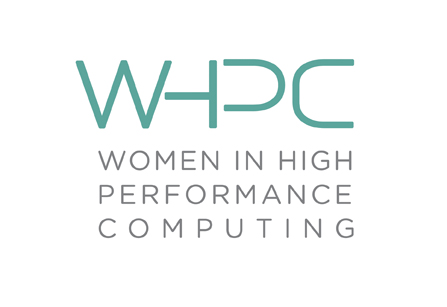
Great Plains Network Women in High Performance Computing (GPN-WHPC) is Chapter of the International Women in High Performance Computing (WHPC) organization. This Chapter is open to everyone, and its primary goal is to promote a diverse and inclusive environment for all HPC researchers as all as researchers interested in using and learning about HPC resources. As a Chapter, GPN-WHPC meets twice a month at noon CST on Zoom. Every second Wednesday of the month is for open discussions, and every fourth Wednesday is for an invited speaker.
GPN-WHPC is very excited to announce its first invited presenter, Lauren Michael, for its meeting on Wednesday, March 24.
Please join at: http://bit.do/gpn-whpc at noon CST.
The full invitation link is: https://zoom.us/j/99330960764?pwd=SUlvekVWdmpVN1VYRTZSNHF1SlhLQT09
Meeting ID: 993 3096 0764
Passcode: 786200
Time: noon - 1:00 PM CST
More about the speaker:
Lauren Michael has worked as a Research Computing Facilitator at UW-Madison's Center for High Throughput Computing since 2013, and now leads Research Facilitation at UW-Madison and for the Open Science Grid. She serves as co-PI and lead of Facilitation Services for the NSF's new Partnership to Advance Throughput Computing, and you might recognize her as the outgoing co-Coordinator for the People Network, among other roles relevant to the Campus Research Computing Consortium (CaRCC).
The Open Science Grid is a consortium of researchers and providers of research computing and data resources, aligned around the common vision to advance research through distributed high-throughput computing (dHTC) capabilities. In addition to developing technologies for large collaborations to support their own virtual pools of capacity within the 'grid', the OSG core team supports the Open Science Pool, where researchers from individual research groups and smaller collaborations accessed more than 360 million core hours of contributed capacity in the last year, contributed by more than 100 different institutions. Researchers with computations executable as numerous independent tasks can access this capacity from access points at their campus or via the OSG-operated OSG Connect service, with personalized guidance and support for various software and data requirements. The OSG core team also provides services for campuses to share their local computing or data resources, and for supporting their own research community, including dHTC Facilitation training and services for campuses to support their own access points.
Everyone is welcome to join the meetings and is encouraged to bring coworkers, friends, and allies!